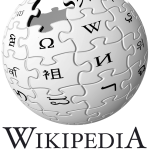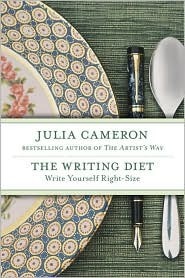Over the past 4 years of being a published author, I'm pretty sure I've amassed the requisite 10,000 hours of practice to master a skill.* This is a highly unscientific estimate, of course, but after 4 novels published, another in the revision stage, and other stories in the preparation phases, I have become very, very good at one thing:
Procrastination.
I have been known to do almost anything to avoid starting to write. Oh, once I'm writing, it's fine. But the dread of beginning… ::shudder:: I will do dishes, vacuum, obsessively check my Amazon ranking every hour on the hour…
This obviously, is not the healthiest way to live, let alone get a book written. The trick I have learned, in all my mastery of procrastination, is to make it constructive.
Otherwise known as: I'm doing this because it's for WORK.
1.
Charts.

See, I told you it's taller than me. (Also, I'm standing in front of all the stuff I can't show you.)
And Graphs. And Calendars. And lists. There is nothing more constructive than organizing what you're going to write, and thereby avoiding writing. I have been known to print out a calendar (marvelously, my iCal on my computer can go all the way back to regency times. Meaning I can find out that June 2nd, 1823 was a Monday. Which you never know, it could turn out to be useful.)
I have a large white board in my office. It's massive. It's taller than me. It's an incredibly useful tool to visualize my work. I make a lot of lists on this board – whether it be of what I have to do next in terms of my website, or the next scenes I have to get through in my manuscript, or notes that I should remember in my writing.
You know what they say: those who can, do. Those who procrastinate, organize.
2A. Visual Genre Research. (i.e., watching every Masterpiece Theatre costume drama Netflix has)
[image error]Do you write sci-fi? Time for that Battlestar Galactica marathon! Or are you a paranormal type? Nothing like viewing An American Werewolf in London to help you fine tune that werewolf transformation sequence you've been planning. Or, if you're like me, and of a historical mind frame, you can indulge in a BBC orgy.
In all seriousness, visual genre research (VGR) has its uses. You never know when a certain visual scrap of information about a historical time period will come in handy. How a certain fabric of dress looks, or how a quadrille was danced, or what a great hall looks like lit by thousands of candles (I recommend Barry Lyndon for this one – Kubrick was a zealot about using period-appropriate lighting for those scenes). All are things I could have only learned by seeing it with my own eyes.
2B. Literary Genre Research. (i.e., re-reading Pride and Prejudice for the zillionth time)
[image error]Very similar to VGR but obviously, literary genre research (LGR) involves lying down in a comfortable position, likely a lounge chair, or maybe on a beach, with an umbrella drink, and reading a book. The difference between this type of research and the previous is that – at least for me – reading books written in the time period that I'm writing (Regency) helps illuminate the voice of that era. The tone, the inflection, the cant, the slang, passive vs. active voice, and how it all comes together. While the VGR is more plot or detail oriented, LGR tends to be more about the writing itself.
3.
Wikipedia. (i.e. the very edges of the internet abyss.)
 Wikipedia is troublesome. On the one hand, an excellent way to learn that specific tidbit of information that you really needed to know about British Horse Racing, the first Anglo-Burmese War, or the proper address for a knight's wife, but it is ON THE INTERNET. And I cannot stress enough the wormhole of unproductivity the internet can be. One minute you're pleasantly researching an important historical fact, and then you follow the link to an off site resource, which is justifiable, you tell yourself. You need to see more pictures of period costumes from the LACMA exhibit. Then all of a sudden you are shopping for dresses on Anthropologie and suddenly 2 hours (and $200) are gone.
Wikipedia is troublesome. On the one hand, an excellent way to learn that specific tidbit of information that you really needed to know about British Horse Racing, the first Anglo-Burmese War, or the proper address for a knight's wife, but it is ON THE INTERNET. And I cannot stress enough the wormhole of unproductivity the internet can be. One minute you're pleasantly researching an important historical fact, and then you follow the link to an off site resource, which is justifiable, you tell yourself. You need to see more pictures of period costumes from the LACMA exhibit. Then all of a sudden you are shopping for dresses on Anthropologie and suddenly 2 hours (and $200) are gone.
The key to internet research is only when you have to. I achieve this by temporarily disconnecting the internet from my computer (Mac Freedom is my method of choice), and when I need to look up something, doing so on my phone – which is much harder to type on and therefore much less user friendly.
4. Free-form writing.
 This is a habit I picked up when I was in a deep, dark place. A place where I wasn't getting any writing of any kind done, period. And so, I did what we do during these times, and I went to the bookstore, to browse the self-help section and congratulate myself on not needing one of those books (although my personal copy of Act Like a Lady, Think Like a Man might disagree with me). But then I came across a book called The Writing Diet, by Julia Cameron – an author and creative writing teacher. And while I always have the 7-10 pounds that I want to lose, I never considered writing myself there.
This is a habit I picked up when I was in a deep, dark place. A place where I wasn't getting any writing of any kind done, period. And so, I did what we do during these times, and I went to the bookstore, to browse the self-help section and congratulate myself on not needing one of those books (although my personal copy of Act Like a Lady, Think Like a Man might disagree with me). But then I came across a book called The Writing Diet, by Julia Cameron – an author and creative writing teacher. And while I always have the 7-10 pounds that I want to lose, I never considered writing myself there.
As I still have the 7-10 pounds, the more dietary measures of the book did not stay with me, but one of the activities Cameron advocates is to write three pages, every morning, of whatever. Not a story, not a diary, just whatever your hand feels like putting down as thoughts run across your brain.
This free-form writing can be monumentally helpful in getting you to do that thing that you've been procrastinating against – writing. As you put down never-ending sentences that detail in turn how much you wish your partner would make the bed in the morning and not leave dishes everywhere and how you haven't ridden your bike in three weeks and it's likely rusted now and what am I going to do with that one character I cannot get a handle on, and suddenly you shift into ALL CAPS BECAUSE YOU COULD NOT BELIEVE THE WAY THAT GUY CUT YOU OFF ON THE ROAD YESTERDAY, your mind begins to clear of all the other stuff, and begins to focus on the story that you've been nurturing, but not writing. And you begin to plot, and to pace, and to sketch out a scene – just one, for somewhere in the middle of the story – and ta da! You're back to writing.
So just remember, if you're stuck in a rut and the last thing you want to do is write, then make your procrastination constructive, and soon enough, you'll find yourself doing that think you've been avoiding – writing – and damned glad about it.
Until later, kids – Happy Reading!
* I got the 10,000 hours thing from Malcolm Gladwell's Outliers. Awesome book that tells you why the Beatles are the Beatles. Go. Read. Learn.
 newest »
newest »
 newest »
newest »
 Thank you. I'm always looking for more helpful tips for my procrastination habit. Now if I could only find help for my post office phobia.
Thank you. I'm always looking for more helpful tips for my procrastination habit. Now if I could only find help for my post office phobia.
 Teresa wrote: "Thank you. I'm always looking for more helpful tips for my procrastination habit. Now if I could only find help for my post office phobia."
Teresa wrote: "Thank you. I'm always looking for more helpful tips for my procrastination habit. Now if I could only find help for my post office phobia." Aah, but in there lies the rub. Living in Bohunkville where anything automated is considered the devil's handywork, I'm stuck with the old waiting in line for the ONE turtle teller routine. And I'm pretty sure they were all hired on their resemblences to a John Hughes film lunch-lady. Scary stuff! lol
Aah, but in there lies the rub. Living in Bohunkville where anything automated is considered the devil's handywork, I'm stuck with the old waiting in line for the ONE turtle teller routine. And I'm pretty sure they were all hired on their resemblences to a John Hughes film lunch-lady. Scary stuff! lol






